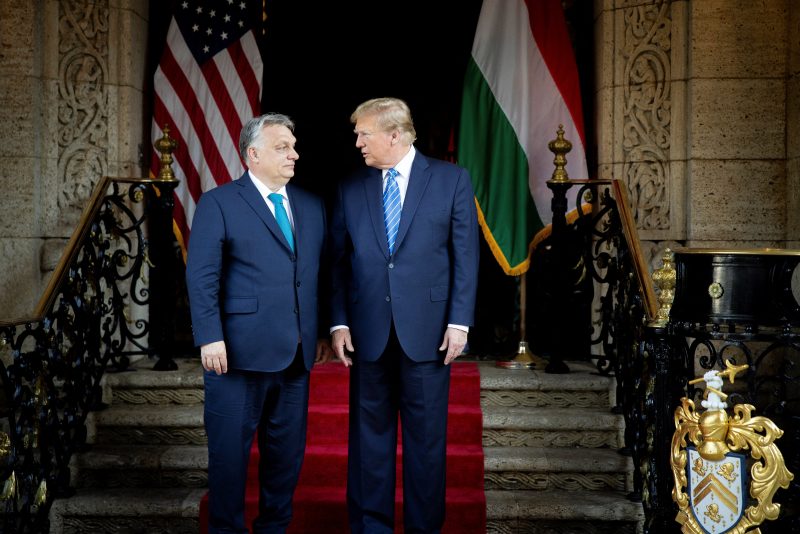In a meeting that has sparked debates and raised eyebrows, former U.S. President Donald Trump recently met with Hungarian Prime Minister Viktor Orban, known for his autocratic rule in Hungary. The meeting between the two controversial figures has drawn attention from various corners of the political spectrum and has led to speculation about the implications of this interaction.
The meeting took place at Trump’s Mar-a-Lago estate in Palm Beach, Florida, with both leaders emphasizing the importance of their countries’ relationship and discussing various political issues. Orban, a staunch nationalist and a vocal critic of mass migration, has implemented policies that have been widely criticized for undermining democracy and the rule of law in Hungary. Trump’s decision to meet with Orban has been seen as a signal of his support for the Hungarian leader’s authoritarian tendencies.
Critics of the meeting have expressed concerns about the implications of Trump’s association with Orban, given the latter’s track record of cracking down on dissent and eroding democratic institutions in Hungary. Many see this meeting as a validation of Orban’s authoritarian approach and a further erosion of the values of democracy and freedom that have long been championed by the United States.
On the other hand, supporters of the meeting argue that engaging with leaders like Orban is necessary for advancing U.S. interests and maintaining strategic relationships with key allies. They contend that the meeting was a pragmatic move aimed at strengthening ties with Hungary and countering the influence of Russia and China in the region.
The meeting between Trump and Orban highlights the complex dynamics at play in international politics, where realpolitik often trumps principles of democracy and human rights. It raises questions about the role of the United States in promoting democracy and human rights worldwide, especially when dealing with authoritarian leaders who are seen as allies in advancing strategic objectives.
As the fallout from the meeting continues to reverberate, it remains to be seen how the international community will respond to this display of camaraderie between two controversial leaders. The meeting serves as a reminder of the delicate balance that political leaders must strike between pursuing their interests and upholding the values that underpin the global order.
